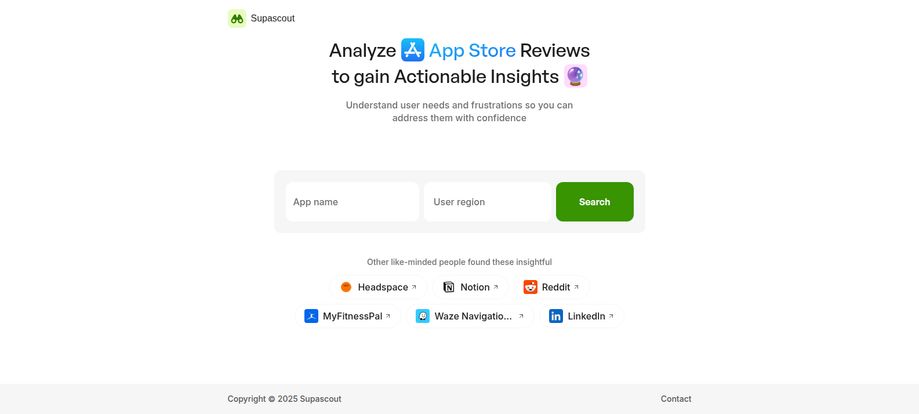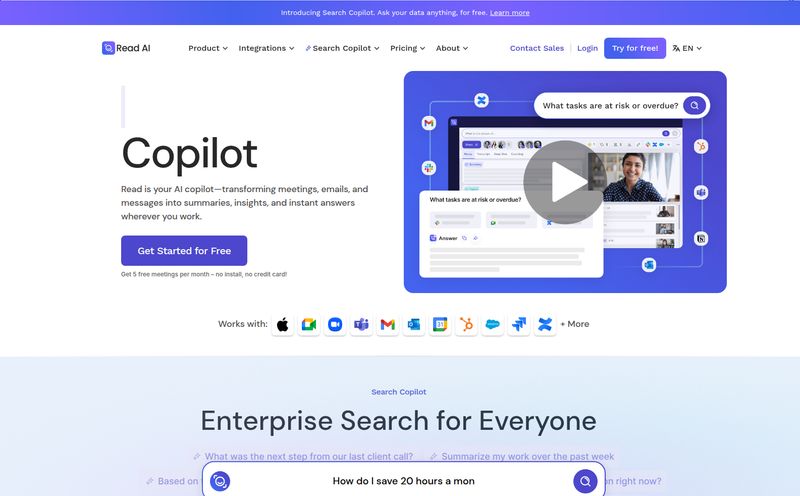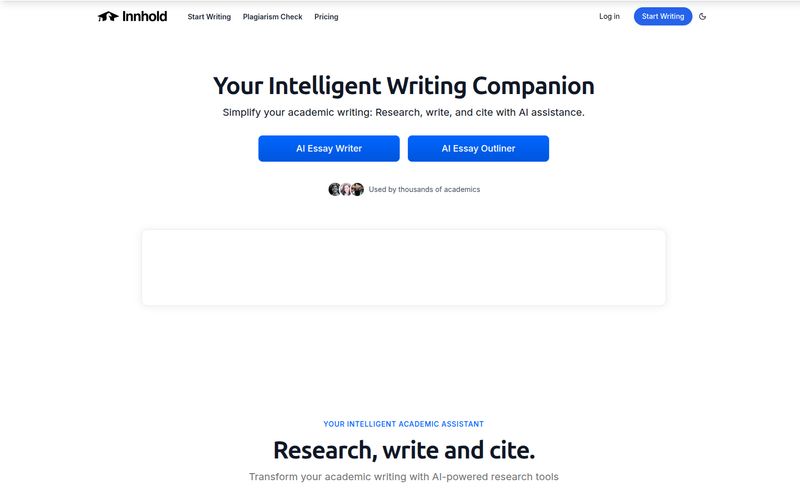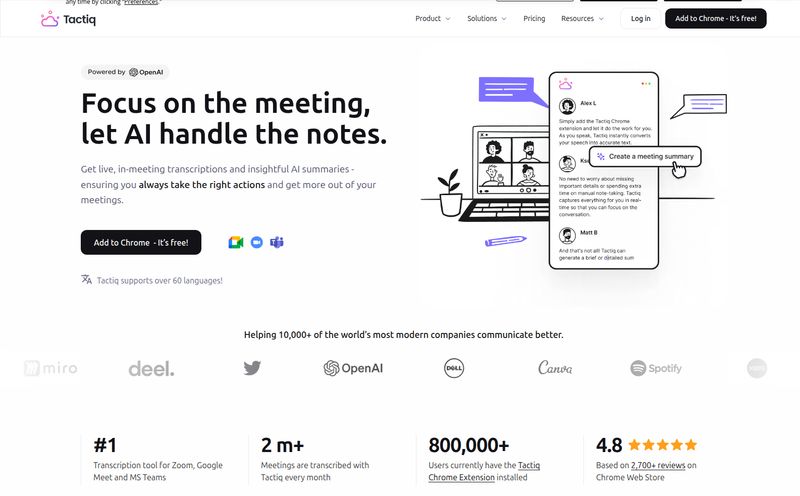If you’re a product manager, an indie dev, or a marketer in the app space, you’ve been there. Staring at the App Store, scrolling through an endless wall of user reviews. It's a mess of five-star raves, one-star rants, and a whole lot of three-star 'meh' in between. You know there’s gold in there somewhere—game-changing feedback, brilliant ideas, bug reports that could save your next update—but who has the time to sift through thousands of them?
I’ve personally spent entire afternoons with spreadsheets, copy-pasting reviews, trying to tag them by theme. It’s a soul-crushing, mind-numbing task. It’s the digital equivalent of panning for gold in a river of mud. So when I stumbled across a tool called Supascout, my inner-cynic and my hopeful-optimist had a little fight. The optimist won. I had to check it out.
So, What Exactly is Supascout?
In the simplest terms, Supascout is an App Store review analyzer. But that’s a bit of a dry description. Think of it more like a super-smart assistant who volunteers to do the most boring part of your job. You tell it which app to look at, and it goes off, reads all those reviews, and comes back with a neat summary of what people are actually saying. No spreadsheets, no manual tagging, just the good stuff.

Visit Supascout
The homepage is refreshingly simple. There’s no marketing fluff, no parade of abstract feature promises. Just two boxes: 'App name' and 'User region'. That's it. You type in an app, pick a country, and hit 'Search'. I have to say, I appreciate this directness. In a world of overcomplicated SaaS platforms that require a demo just to understand the dashboard, this is a breath of fresh air.
Putting It Through Its Paces
To give it a fair shake, I decided to look up a few of the big names they feature on their homepage, like Notion and Headspace. Now, I don't have access to their backend, but I can imagine what the results look like based on the tool's promise. For an app like Notion, I'd expect Supascout to bubble up common themes we all know and talk about. Things like:
- Frustrations: “The mobile app can be slow to load,” “offline mode is unreliable,” “the learning curve is steep for new users.”
- Praises: “Incredibly flexible and powerful,” “love the database features,” “great for organizing my whole life.”
The real value isn't just seeing these points listed. It's about seeing them quantified and pulled automatically from thousands of individual voices. It transforms anecdotal evidence into a solid data point you can actually take to your team. You're no longer saying, "I saw a few reviews about speed"; you're saying, "Performance is one of the top three frustrations mentioned by our users in the US App Store." See the difference? That’s how you get budget and engineering time.
The Real Goldmine Is Competitive Intelligence
Here’s where my brain really started buzzing. Analyzing your own app’s reviews is one thing. That’s just good product hygiene. But using Supascout to legally spy on your competition? Now that’s a strategy.
Imagine you're building a new meditation app to compete with Headspace or Calm. Instead of spending thousands on market research, you could just plug their names into Supascout. In minutes, you’d have a summarized list of their users’ biggest complaints. Maybe users are tired of the subscription model, or they find the celebrity-narrated sessions distracting, or they’re begging for a specific type of soundscape that doesn't exist yet.
Boom. That's not just feedback; that's your feature roadmap. It's a list of pain points that you can design your entire product to solve. You’re essentially letting your biggest competitors do the hard work of customer discovery for you. It feels like cheating, but it's not. It's just smart.
The Good, The Bad, and The App-Store-Only
No tool is perfect, of course. After playing around with the idea of it, I have a pretty good feel for its strengths and where it falls a bit short.
What I Really Liked
The standout quality is the promise of actionable insights. It’s not just a word cloud of popular terms. It aims to understand intent—separating frustrations from satisfactions. This distinction is so important. For product teams, solving frustrations is key to reducing churn. Doubling down on what users love is key to growth. Supascout seems built around this core principle. It's also incredibly fast. The ability to get the pulse of an app's user base in seconds is a powerful thing for any ASO or product marketing strategy.
Where It Could Improve
The most obvious limitation is right in the name: App Store reviews. Currently, there’s no mention of the Google Play Store. For any app with a significant Android presence, you're only getting half the picture. I really hope that’s on their roadmap because it’s a major gap.
Another thing to keep in mind is that the tool's effectiveness is tied to the source material. If an app only has a handful of reviews, Supascout won't be able to work its magic. You need a decent volume of feedback for the trends to become meaningful. It’s not a knock on the tool itself, just a law of data science—garbage in, garbage out.
So, How Much Does This Magic Cost?
This is where things get interesting. I scoured the site looking for a 'Pricing' page, and... there isn't one. The link in their data is empty. So, is it free? Is it in an open beta? I have no idea. The copyright notice on the site even says © 2025 Supascout, which is a fun little quirk. Maybe they're from the future and have figured out post-scarcity economics.
My best guess is that its a new tool, possibly in a beta phase, and they're letting people use it for free to gather feedback and build a user base. If that's the case, I’d recommend getting in now while the gettin's good. A tool this useful won’t stay free forever.
Who Is This Tool Really For?
While I think anyone in the app world could find it useful, I see a few groups getting the most out of it:
- Indie Developers: When you're a one-person show, time is your most valuable asset. Supascout automates a critical but time-consuming task.
- Product Managers: It provides the user data needed to build a business case for your roadmap and prioritize features with confidence.
- Marketing & ASO Teams: What better way to find the right language for your ads and app description than by using the exact words your target audience uses to describe their problems and desires?
Frequently Asked Questions
- Does Supascout analyze Google Play Store reviews?
- As of now, it seems to be focused exclusively on the Apple App Store. There's no mention of Google Play functionality on their site.
- Is Supascout free to use?
- There is no public pricing information available, so it appears to be free for now. This might change in the future as the tool develops.
- What kind of insights can I really get from Supascout?
- You can expect to see clear summaries of common user frustrations (like bugs or missing features), things users love, specific feature requests, and general sentiment trends.
- How is this better than just reading the reviews myself?
- It's about scale and efficiency. While you can read 20 reviews, you can't realistically read and categorize 20,000. A tool like Supascout spots overarching trends and patterns in massive datasets that a human would likely miss.
- Can I analyze apps from any country?
- Yes, the 'User region' field on the homepage allows you to specify a country, so you can analyze feedback from your key markets around the world.
My Final Verdict
Supascout is a beautifully simple tool that does one thing and appears to do it well. It’s a focused solution to a very real, very annoying problem. It strips away the complexity and gives you what you need: a clear, concise understanding of what users are screaming into the void of the App Store.
While the lack of Google Play support is a bummer, I can't be too harsh on what looks like a new product. For what it is right now, it’s a fantastic little gem. If you’re in the app business, I’d say it’s a no-brainer to bookmark it and give it a try. Go plug in your biggest competitor’s app. You might just find the idea for your next big feature.



